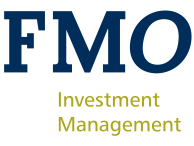When chocolate can be an agent of change
With approximately 190 million inhabitants, Nigeria accounts for almost half of West Africa’s population. Approximately 13.5% of the people living in Nigeria are unemployed and half of the population lives under the poverty line of USD2 per day. Agribusiness provides a lot of employment especially in rural areas, with cocoa as its most important commodity for which demand continues to grow. The land for new cocoa however is limited. The challenge in cocoa farming today is to boost yields and make cocoa farming an attractive and sustainable livelihood for farmers now and in the future.
Making a difference as a supply chain manager
 This is where the role of an agri trader and supply chain manager comes in, who is able to make a real difference. ECOM is such a supply chain manager and agri trader that builds on almost 170 years of experience in 40 countries worldwide. They are a frontrunner when it comes to sustainability. Implementing high standards and assisting the farmers with their challenges. They know from experience and research that yields can be significantly increased by improving agricultural practices, using the right inputs (e.g. fertilizer) and working on the rehabilitation of farms. ECOM combines this with practical training and by giving farmers access to the right inputs. Through this hands-on support farmers can transform their farms into productive and profitable livelihoods for the long-term.
This is where the role of an agri trader and supply chain manager comes in, who is able to make a real difference. ECOM is such a supply chain manager and agri trader that builds on almost 170 years of experience in 40 countries worldwide. They are a frontrunner when it comes to sustainability. Implementing high standards and assisting the farmers with their challenges. They know from experience and research that yields can be significantly increased by improving agricultural practices, using the right inputs (e.g. fertilizer) and working on the rehabilitation of farms. ECOM combines this with practical training and by giving farmers access to the right inputs. Through this hands-on support farmers can transform their farms into productive and profitable livelihoods for the long-term.
ECOM’s initiatives for sustainable cocoa focus not only on training farmers in good agricultural practices, but also on implementing an effective traceability system that allows better knowledge of farmers and the opportunity to develop the right and timely interventions. In order to convince the farmers of the value of their extra efforts to rehabilitate their farms, ECOM is creating widespread demonstration sites.  ECOM believes the old adage “seeing is believing” is the best way to engage farmers. In parallel, ECOM also works on strengthening the farmers’ organizations and especially training their management on the importance of transparency and bringing added value to its members. This focus includes providing access to credits and better seeds and planting material.
ECOM believes the old adage “seeing is believing” is the best way to engage farmers. In parallel, ECOM also works on strengthening the farmers’ organizations and especially training their management on the importance of transparency and bringing added value to its members. This focus includes providing access to credits and better seeds and planting material.
Child labor is seen as a critical and recurrent issue in the industry, so ECOM also includes youth protection in its training modules. In order to achieve such an ambitious program, ECOM strongly believes in partnership and open dialogue with all members in its supply chain.
The FMO loans
Even though ECOM is a reputable organization with a long and steady track record, it is still difficult to find suitable long-term financing for its businesses in emerging and frontier markets. This is why FMO has been financing ECOM since 2012 with a number of loans that have been used to establish long-term sustainable supply chains with smallholders in coffee and cocoa producing countries and to reduce the environmental impact of its processing operations (e.g. installation of a solar panel field in its cocoa bean processing facility in Nigeria, cutting the use of fossil fuel to power the plant by almost half). The relationship with ECOM is excellent and its continued endeavor to be a sustainable agribusiness leader sector-wide makes ECOM a suitable party for investment.


